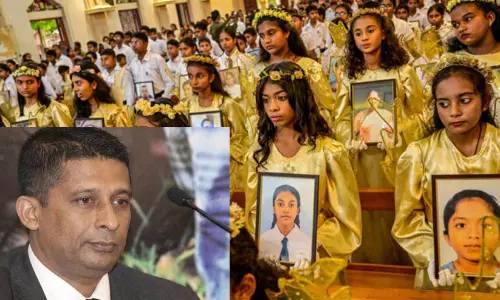
SC ruling on reservation policy faces criticism amidst implementation issues
text_fieldsOn August 1, a seven-judge constitutional bench of the Supreme Court, chaired by Chief Justice of India D.Y. Chandrachud, ruled in favour of sub-classifications within Scheduled Castes (SCs) and Scheduled Tribes (STs)for reservations in education and employment. This ruling, which intends to refine the reservation policy, also saw four judges suggesting the application of the "creamy layer principle"—a concept previously limited to Other Backward Classes (OBCs). The principle aims to exclude the more affluent individuals within these groups from reservation benefits.
Critics argue that this suggestion assumes a flawless implementation of the reservation policy by states, a claim which seems unsubstantiated by current data. Examination of recruitment practices within the judiciary reveals significant discrepancies. An RTI application filed by Nagpur-based lawyer Ankit Thool uncovered that the Bombay High Court, which encompasses four benches—Bombay, Nagpur, Aurangabad, and Goa—has not fully implemented the reservation policy for non-judicial staff. The Public Information Officer (PIO) disclosed a lack of guidelines for caste-based reservation within the court's recruitment process.
Thool’s RTI application highlighted issues including vacant positions across various groups within the Bombay High Court. Out of 82 positions in Group A, 11 remain unfilled; Group B has 8 vacancies out of 55; Group C shows 45 unfilled positions out of 297; and Group D has 24 vacancies out of 220. This data underscores significant gaps in staffing and adherence to reservation policies.
In response to the RTI findings, Thool filed a complaint with the National Commission for Scheduled Castes (NCSC), which in turn ordered an inquiry into the matter. Despite a notice issued to the Bombay High Court's registrar, there has been no confirmation of a response from the court as the deadline has lapsed.
Further scrutiny of recent job advertisements from the Bombay High Court reveals a blatant disregard for the reservation policy, unlike other states like Madhya Pradesh, which appear to have adhered to the guidelines. The issue extends beyond recruitment for judicial positions, where the central government has frequently urged states to ensure proper representation of SC, ST, and OBC communities. Despite these recommendations, progress has been slow, with limited representation in higher judiciary roles.
This issue also forms part of a broader campaign led by Sanjay Thul, an assistant commissioner in the Central Goods and Services Tax department, who has sent similar RTIs to various High Courts. Thul and other anti-caste advocates have identified severe shortcomings in reservation implementation, particularly in Bombay and Delhi High Courts, which have been criticized for failing to meet constitutional provisions.
The NCSC, in a decade-old report, had previously highlighted the poor representation of SCs and STs in court staff, referencing a Kariya Munda report from 2000. This report indicated that while some High Courts partially adhered to reservation policies, the Bombay and Delhi High Courts lagged significantly.
Justice B.R. Gavai, one of the Supreme Court judges supporting the creamy layer principle, had previously served in the Bombay High Court. Critics suggest that he, and other judges advocating for sub-classifications, should have ensured the effective implementation of the reservation policy within their own jurisdictions before endorsing new principles.























